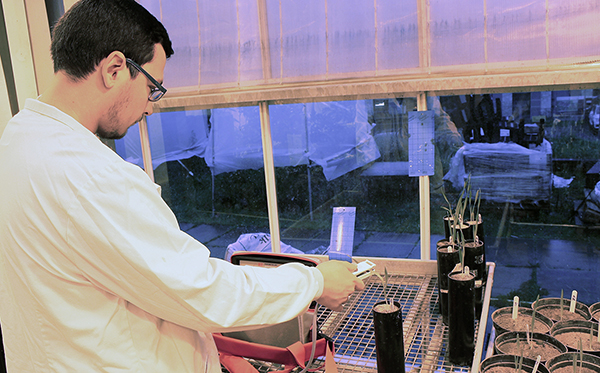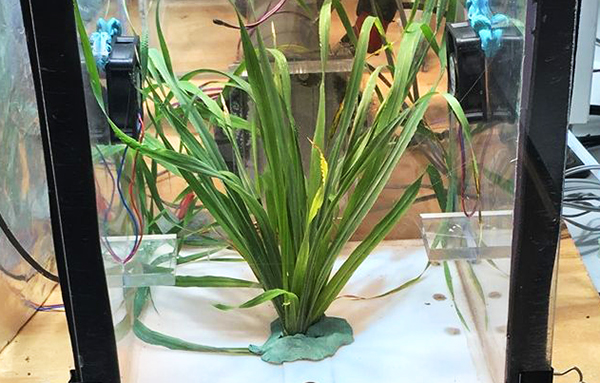Three years ago, ICL joined forces with Lancaster University in Lancaster, United Kingdom, to research how surfactants—also known as wetting agents—affect plant physiology. Most previous surfactant research focused on soil-water relations and how wetting agents can help growers like you improve water distribution and retention in soil. But this collaborative effort shifts the emphasis to how wetting agents modify soil-plant relations.
At the center of the project, now approaching its end, is Ph.D. researcher Vasileios Giannakopoulos. Known as “Billy” to his U.K. colleagues, Vasileios received his bachelor’s degree in agricultural development and agribusiness management at the Alexander Technological Educational Institute of Thessaloniki, Greece. But in 2017, he began his Ph.D. research at the Lancaster Environment Centre, drawn by the opportunity to research wetting agents in this collaboration with ICL.

Vasileios’s pioneering research represents the first time such in-depth studies on surfactants and plant physiology have been done. “There has been very little similar research, so we have no comparison. It is very exciting,” he says. In this time of growing environmental awareness and global warming, this research is more relevant than ever.
The studies work with ICL surfactants to investigate how wetting agents affect efficiency of water and nutrient use. “Wetting agents are very efficient in fighting soil water repellency and localized dry spots,” Vasileios shares. “But with this research, we can prove its benefits on a plant physiology level and open doors to other areas as well.”
The focus of the Lancaster greenhouse and laboratory research centers on how wetting agents affect four key measures:
- soil water availability (the soil’s capacity to hold water available for plant use)
- transpiration under elevated evaporative demand (high to low air humidity)
- root traits (length, surface area, and volume)
- stomatal conductance (the rate at which CO2 enters or water vapor exits leaf stomata)
So far, the results are promising. With just a few months left until the project winds up, Vasileios has found that wetting agents increase root access to water. This could mean that surfactants can optimize drought resilience in plants—a tremendous potential benefit to growers worldwide. He also found that leaf stomata were slightly more open when a wetting agent was applied.

The outcomes of ICL’s research collaboration with Lancaster will provide important scientific support in the development and responsible use of surfactants. “ICL is an expert in wetting agents and has a great R&D department,” Vasileios shares. “They really know their products and have been very active throughout my research. We have meetings frequently and their advice is an important contribution to my research.”
ICL’s involvement in the Lancaster project bridged a gap between the industry and academic world—a point of special importance to Vasileios. “Though I love the lab, this is not the real world,” he says. “We really benefit from getting input directly from the growers, and it is also good to be reminded of who will benefit from the outcomes of my research: the growers, farmers, and the turf managers.”
Though the university’s temporary coronavirus closure slowed lab studies, Vasileios hopes to complete his experimental work and finalize his research soon. “With this Ph.D., I feel we have opened a door to something new,” he shares. “The demanding future will want us to become more efficient with water, fight droughts, and improve plant resilience, so this is rather the beginning than the end of our research.”
As a global leader in specialty fertilizers, our team here at ICL believes in the importance of investing in research and development to gain new knowledge to help growers like you succeed. Interested in learning more about how ICL wetting agents can help your growing operation? Give us call or send us an email; your local ICL specialist can fill you in. We agree with Vasileios—this is just the beginning.
Online Resources:
Ornamental Horticulture: H2Pro Greenhouse and Nursery Liquid
Ornamental Horticulture: H2Pro Greenhouse and Nursery Granular
